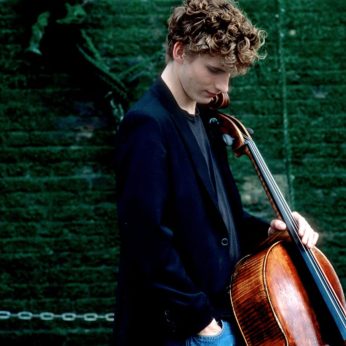Composer: Percy Grainger (b. 1882 - d. 1961)
Performance date: 02/07/2014
Venue: St. Brendan’s Church
Composition Year: 1902
Duration: 00:15:23
Recording Engineer: Richard McCullough, RTE
Instrumentation: vc, pf
Instrumentation Category:Duo
Artists:
Andreas Brantelid -
[cello]
José Gallardo -
[piano]

Born in Melbourne,
Australia, Grainger was often called the “wild boy” of music in his day. A
remarkable eccentric, he was a keen hiker and athlete, but also a brilliant and
highly successful concert pianist and an important folk-music collector. He lived in London at the start of the 20th
century and then moved to New York; his marriage to a Swedish poet took place
during a concert in the Hollywood Bowl in 1928. His compositions are largely
arrangements of folk music with his version of Country Gardens achieving enormous success and earning him a
fortune, though he came to loathe the piece.
At the start of the
20th century he travelled around Scandinavia extensively and made a
valuable collection of local melodies, but the five tunes in this Suite are from
an earlier time and were given to him by a fellow student, the Danish cellist
Herman Sandby, when they were at the Hoch Conservatory in Frankfurt [1895-1901];
they would play it many times in later years. The Suite was published by Schott
in Germany in 1902 when Grainger was just 20; the arrangements are simple and
appealing. The first opens with a wistful slow melody into which a lively dance
breaks; the opening air is then repeated with some darker hues. The second song
from Vermeland in Sweden presents a soulful, broad melody and was a frequent
encore for Grainger as a solo piano piece at his recitals; it became
independently popular with pianist Billy Mayerl who arranged it as Song of the Fir Tree, which he
frequently played in the 1920s and 30s. Norwegian
Polka is a sprightly, tongue-in-cheek arrangement, while the Danish
Melody is not folk music but was written by H.E.Krøyer in 1835 and is the Danish National Anthem Der er yndigt land (There
is a lovely country). Another slow, wistful melody launches the final
movement, the cello then introduces a sparkling Norwegian spring dans which is worked
up into a colourful climax.
Copyright © 2025 West Cork Music. All rights reserved.
Designed and developed by Matrix Internet